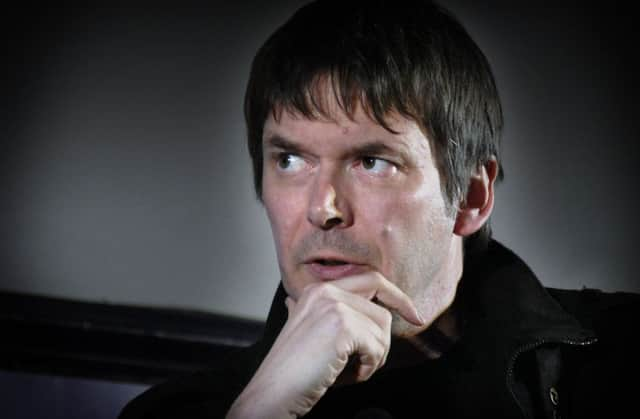Devil's advocate


Rebus, now retired, is also ill. Rather than thinking about the results of a forthcoming test for “Hank Marvin” – his typically mordant name for what might be causing the shadow on his lung – and struggling with giving up the coffin nails, he is chewing over a cold case he could never solve. Forty years beforehand, Maria Turquand, the promiscuous wife of a banker, was strangled in a room in the Caledonian Hotel, on the same night that a local rock star was staying there with his entourage.
Rebus’s erstwhile colleagues, Siobhan Clarke and Malcolm Fox, have their own ongoing investigations, both converging on Big Ger Cafferty’s treacherous protégé, Darryl Christie. Fox, now promoted to the Scottish Crime Campus at Gartcosh, is asked to look into Christie’s gambling outlets as potential money-laundering operations. Clarke, resentful of Fox’s elevation, is more concerned that someone gave Christie a serious beating in his own front drive. Linking the cases – whether coincidentally or not – is the scion of a Scottish banking dynasty, who has unaccountably disappeared. Lurking in the background, as always, is Cafferty.
Advertisement
Hide AdAdvertisement
Hide AdSo who has the Satanic tang about them? Everyone, more or less. Of course, the villains exude a mephitic nastiness, from the burnt out case who enjoys confessing to crimes he didn’t commit, to the banker whose own sister thinks him fiendish. In one of the book’s best speeches, Cafferty compares himself to a bridge player: “All those cards are landing just the way they should, and I’m so far ahead on points it’s almost embarrassing.” But the same applies to the police. Rebus, not now actually a policeman, is unleashed from certain proprieties, and as he says to Clarke, “with me, it’s always been about the outcome rather than the process”. The poker-faced Fox, introduced as the anti-Rebus in his self-willed blandness, is increasingly compromised, and Clarke is beginning to see cases as routes to power rather than injustices to be righted.
Rankin is expert at what theorists of realism call the authenticating detail. From the perpetual roadworks on Edinburgh’s Lothian Road to the incline of the ascent from the city mortuary, he places very precise nods at specific local knowledge.
In this, as in most of his more recent novels, one of the distinguishing features of Rankin’s crime novels is that the antagonists are engaged in as much detection as the officials.
Val McDermid is probably stronger on the procedural side of things, and Denise Mina stronger on the deep politics of crime, but Rankin is paramount in dualistic characterisation, where the Jekyll and Hyde of Rebus and Cafferty seek the same thing for different ends. The characters are almost superimposed on each other. Although the novel is divided into days, it is striking how much of those days take place at twilight.
Advertisement
Hide AdAdvertisement
Hide AdA crepuscular air pervades the recent novels, a pathetic fallacy of Rebus’s own gloaming. It is a far more violent novel than Even Dogs In The Wild or Saints Of The Shadow Bible, let alone the “last” Rebus novel Exit Music: readers should be prepared for claw hammers, swords, six-inch nails and antiquated guns. But the violence does not seem sensational. Indeed, it is usually frighteningly banal.
Previous Rebus novels have used contemporary events as verifying points but this is a far more political novel in the profound sense. It isn’t that the past is a different country, they do things differently there; here it is that wealth is a different country, you can do anything there.
The title refers to a John Martyn song, and readers keen to avoid spoilers ought not to look up the full lyrics.
It is no surprise that a Rankin novel is clever and compelling. What will be a surprise is where things go from here.